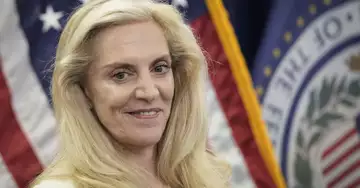Fed Vice Chair Lael Brainard has proved those waiting for a digital dollar wrong, saying the creation of a central bank digital currency (CBDC) in the U.S. would likely take up to five years.
In her first testimony after her recent swearing-in as vice chair of the Fed's board, Brainard told the House Financial Services Committee that the Fed was still studying the issue and would not act until it received approval from the White House and Congress - which in itself could mean a significant amount of time for discussions before an enabling law can be passed.
"It takes a very long time," Brainard said in a hearing Thursday, comparing such a project to the Fed's still-incomplete real-time payments system, which has taken years to build. "It could take five years to get the necessary security features, the design features, in place.
As for those design features, Brainard said it's "probably better not to have an interest-bearing digital currency," addressing concerns among some bankers that a digital dollar could mean a massive and potentially fatal cut to their deposit-taking business. She also mentioned that the Fed is considering a cap on ownership of digital dollars to encourage customers to use them only for payments and not as a safe investment for people or businesses to put their money into.
Should the Fed introduce a digital dollar, Brainard said, the asset could coexist with stablecoins and the existing financial system.
"I really see the potential of a digital dollar as complementing a more stable, efficient system that would include stablecoins and commercial bank money, so I really see them potentially enabling innovation in the private sector," she said. CBDC holdings and transactions would continue to be managed through private sector accounts, Brainard confirmed, rather than direct customer accounts at the Fed.
Brainard said that the issuance of digital analogues to cash by other central banks - as in Europe - could ultimately weaken the U.S. dollar as a global reserve currency, so there would be "potential risks in the U.S. of not having a CBDC."
Longtime Fed Governor Brainard was recently sworn in as vice chair, along with several other new additions to the board, but the Fed still lacks a vice chair for oversight. Biden nominated former Treasury official Michael Barr, who also served for a time as an advisor to Ripple, for the role, but he has yet to be confirmed by the Senate.

